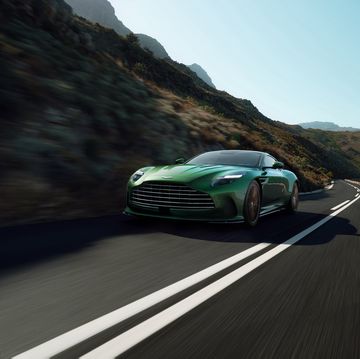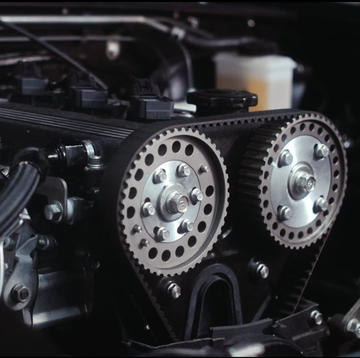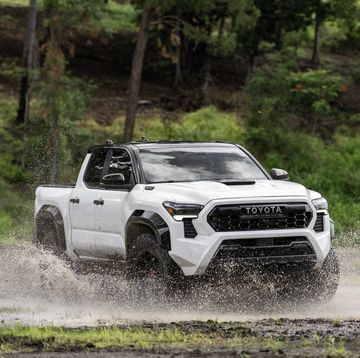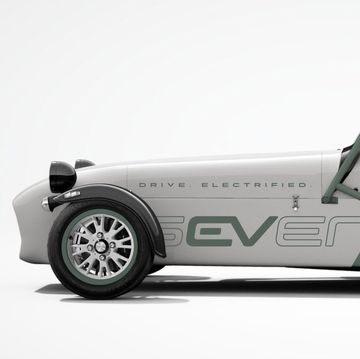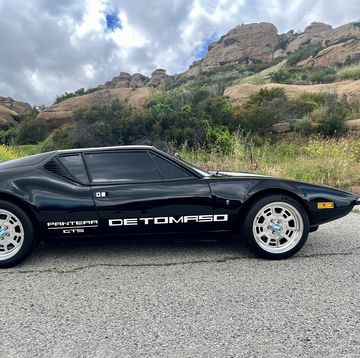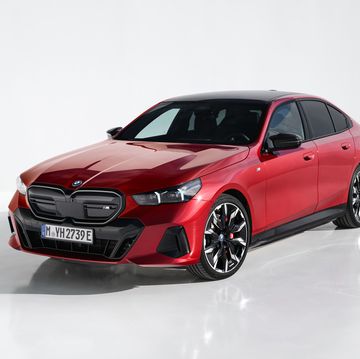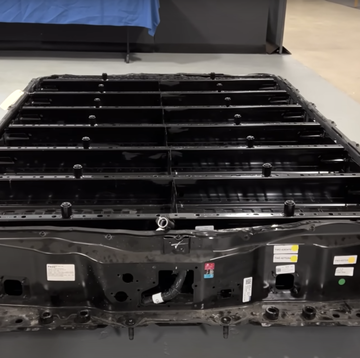Today in news that you'd have hardly have believed three years ago, Honda just announced that it's establishing a works engine partnership with the Aston Martin Formula 1 team starting with the 2026 season. This coincides with new engine regulations set to come into effect that year.
Honda's recent Formula 1 history is complicated. It returned as a works engine supplier for McLaren in 2015 with disastrous results. After that relationship fell apart, the Japanese manufacturer then joined up with Red Bull-owned Toro Rosso (now AlphaTauri) in 2018, and began supplying the Red Bull team in 2019. Honda announced it would pull back from F1 after 2021, prompting Red Bull to set up its own powertrains division to run Honda's engine, and from 2026, build a new engine with Ford backing. But soon after Honda announced its eventual departure, it saw a lot of success, drivers titles for Max Vertstappen in 2021 and 2022, and a constructor's for Red Bull in 2022 as well.
Honda's original decision to pull out from F1 was motivated in part by a need to invest in green technologies, namely electric vehicles. The new engine rules for 2026, however, fit with Honda's aim for carbon neutrality by 2050, as the FIA will mandate sustainable fuel, and the total power output of an F1 car will be set around 50-percent internal-combustion, and 50-percent electric. (Currently, the split is 80:20 in favor of the engine.) With this far bigger electrical component, Honda can tie back its F1 efforts to what it's doing on the road-car side of things, at least from a marketing perspective. Given that, plus its recent success and the accolades that come with it, it's easy to see why Honda registered its interest to become an F1 power-unit supplier last year.
"We believe that the technologies and know-how gained from this new challenge has the potential to be applied directly to our future mass production electric vehicles," said Honda Racing Company CEO Koji Watanabe on a call with U.S. media before the announcement. "Also, F1 introducing a cost-cap structure on power-unit development will make long term and continuous participation in F1 easier."
While it may seem funny to see Honda align with a niche luxury brand like Aston Martin, the British F1 team appears to be a very good partner. Thanks to big investment from owner Lawrence Stroll, the team is on an upswing, currently beating both Ferrari and Mercedes-AMG in the constructor's championship and second only to the (Honda-powered) Red Bull. Aston Martin is also building a new factory, and it aims to win world championships; Honda has the same goals. With Red Bull partnered with Ford, Mercedes, Ferrari, and upcoming entrant Audi building their own engines, Aston Martin is the clear best option for Honda right now.
Aston Martin Performance Technologies CEO Martin Whitmarsh explained the need to have a works engine supply in this coming F1 era. Being able to design a tailor-made package around a power unit rather than having to work around something brought in obviously has huge benefits for chassis and aerodynamics, but with the new regulations, the control systems will take on increasing importance. "We have a certain amount of finite amount of energy in a Formula One car that needs to be deployed at various times around the circuit and the the whole strategy around which you develop that is now a consequence of... simulation and analysis between the power-unit partner and the chassis partner."
There's also the Fernando Alonso of it all. The deterioration of Honda and McLaren's relationship was fueled in large part by an impatient Fernando Alonso, who once infamously described the Honda power-unit as a "GP2" engine while driving for McLaren. Alonso drives for Aston Martin now, and Whitmarsh confirmed that Honda is willing to work with the Spaniard if he's still at the team in 2026, while also noting that it's too early to commit to a driver lineup for that season.
Watanabe said that Honda's F1 participation won't conflict with its IndyCar engine program and the Acura LMDh effort, as both of those are run by Honda Performance Development, a separate company which is a subsidiary of Honda Motor North America.
Honda already has a single-cylinder engine prototype testing now along with an energy-recovery system, and next year, it plans to begin testing the two together. While Red Bull is currently operating Honda's old power-unit and employs a number of ex-Honda employees, Watanabe says that the Japanese company owns all the intellectual property for the unit, so it has a good base to build upon. Aston Martin and Honda may seem like unlikely bedfellows on the surface, but they should prove to be a formidable partnership. We can't wait to see how it shakes out.
A car enthusiast since childhood, Chris Perkins is Road & Track's engineering nerd and Porsche apologist. He joined the staff in 2016 and no one has figured out a way to fire him since. He street-parks a Porsche Boxster in Brooklyn, New York, much to the horror of everyone who sees the car, not least the author himself. He also insists he's not a convertible person, despite owning three.

